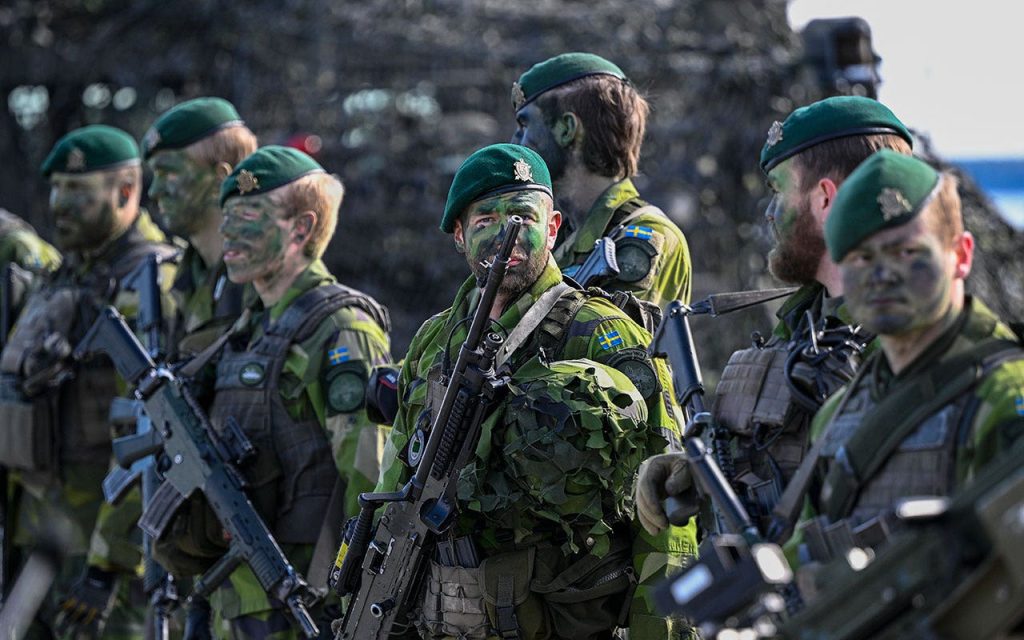A Swedish parliamentary committee has recommended that Sweden increase its military budget by nearly $5 billion until 2030 to strengthen its air defenses and increase the number of conscripts. This recommendation comes after Sweden recently joined the NATO alliance, departing from its longstanding policy of neutrality in response to Russia’s invasion of Ukraine. The Defense Committee, made up of representatives from eight political parties in the Swedish parliament, stated that the current security situation requires higher ambitions, as the possibility of an armed attack against Sweden or its allies cannot be ruled out.
The committee’s report, titled “Strong defense capability, Sweden as an ally,” suggests expanding Sweden’s air defense to counter threats from unmanned flying craft, purchasing more hunting and cruise missiles, and increasing personnel in the navy. Additionally, the report recommends gradually increasing the number of conscripts to 12,000 in 2032, up from the current 8,000 conscripts. Sweden’s two Scandinavian neighbors, Norway and Denmark, have also made similar moves to strengthen their military capabilities. Norway plans to increase the number of conscripted soldiers from 9,000 to 13,500 by 2036, while Denmark will extend conscription to women and increase the length of service from four months to 11 months.
Sweden’s current military budget stands at around $11 billion, and the center-right, three-party coalition led by Prime Minister Ulf Kristersson is expected to follow most of the committee’s recommendations in the report. The committee’s proposal for increased defense spending reflects a broader trend in Europe as countries seek to bolster their military capabilities in response to evolving security threats. With the changing geopolitical landscape and rising tensions in the region, Sweden and its neighboring countries are prioritizing investments in defense to ensure their security and protect against potential threats.
The decision to join the NATO alliance and increase defense spending marks a significant shift in Sweden’s defense strategy, moving away from its longstanding policy of neutrality. The move is seen as a response to Russia’s aggressive actions in the region, including the invasion of Ukraine, which has raised concerns about security and stability in Europe. By strengthening its military capabilities and enhancing cooperation with NATO allies, Sweden aims to enhance its defense posture and contribute to regional security efforts in the face of growing challenges.
The committee’s recommendations signal a renewed commitment to strengthening Sweden’s defense capabilities and enhancing its role as a reliable security partner within the NATO alliance. By increasing its air defenses, bolstering its naval capabilities, and expanding the number of conscripts, Sweden aims to better prepare itself for potential threats and contribute to collective security efforts in the region. The proposed increase in defense spending underscores the country’s determination to adapt to evolving security challenges and ensure its readiness to respond to any potential threats to its sovereignty and territorial integrity.
Overall, the recommended increase in Sweden’s military budget reflects a broader strategic shift towards enhancing defense capabilities and strengthening partnerships with NATO allies in response to changing security dynamics in Europe. By prioritizing investments in key areas such as air defense, naval capabilities, and conscription, Sweden seeks to bolster its security posture and contribute to regional stability. The decision to join the NATO alliance marks a significant departure from Sweden’s traditional neutrality policy and highlights the country’s commitment to enhancing its role as a security provider in the region.


